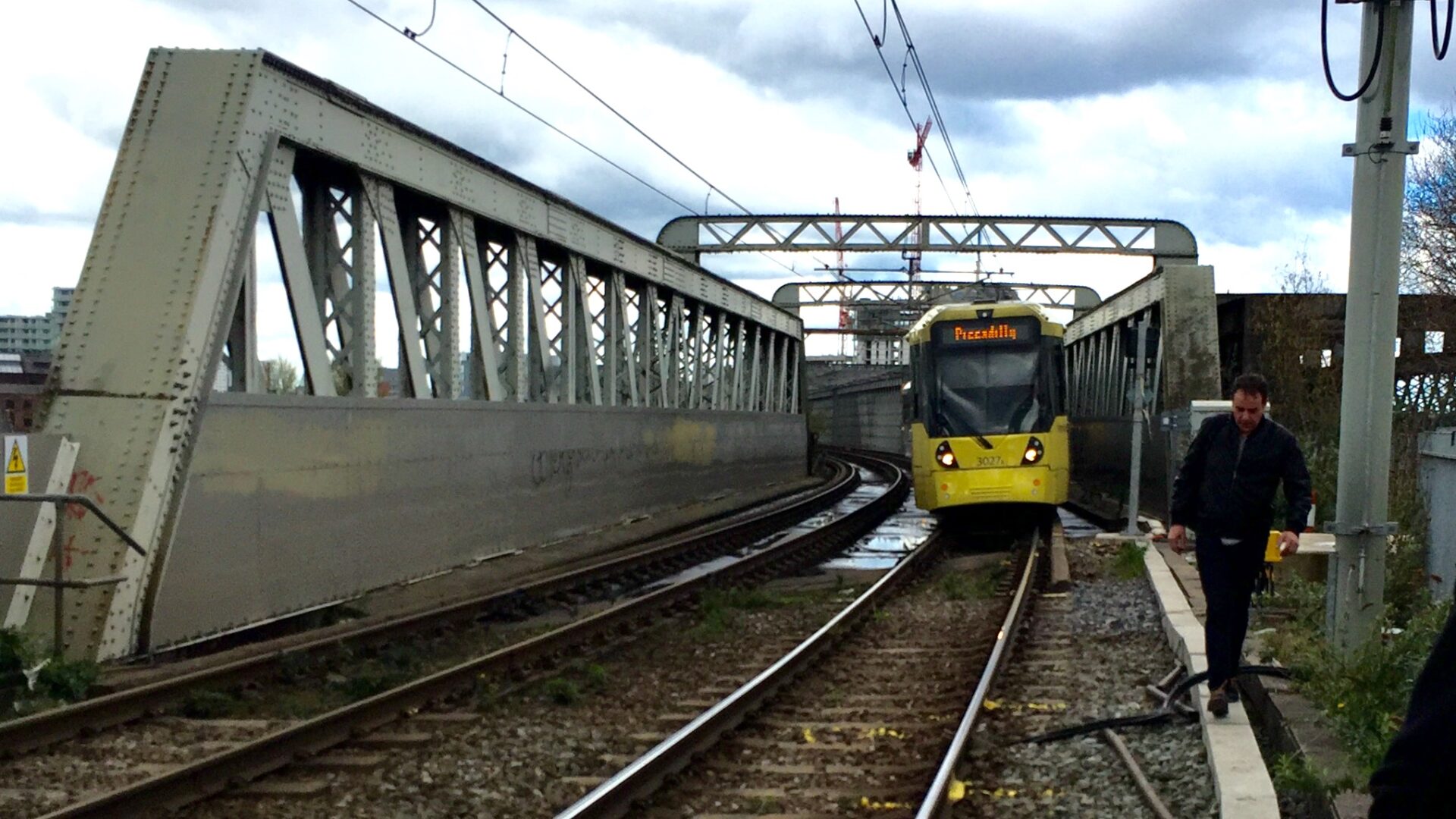Crisis communications: what Metrolink can teach us
As I was heading into the centre of Manchester on Monday, my tram rolled to a stop on the Deansgate Viaduct. Nothing unusual about that, except that after several minutes’ patient wait in the spring sunshine, we were still there. It took a minute or two for the driver to inform us, hesitantly, that there seemed to be lots of trams queued up in front… but that he couldn’t get hold of the control centre to find out what was going on. It took a call from his mobile to ascertain that all the communications on the Metrolink were down, and that no trams in Manchester were going anywhere. I knew this already, because @MCRMetrolink was saying so on Twitter – but the driver didn’t.
Half an hour later, still no news, and the driver politely explained that he didn’t really know any more about the problem than we did, and that while he couldn’t authorise us to get off the tram, he certainly couldn’t stop us if we took it upon ourselves to pull the handle, climb out carefully using the step, and keep left as we walked along the track to the station only a couple of hundred metres away. Point taken.

Passengers make good their escape…
Over the course of the afternoon, passengers were directed to use buses or trains, and to avoid travelling in the rush hour if at all possible. Service began to resume around 4pm – perhaps after someone had switched it off, given it 30 seconds and rebooted – at which point I was glad I’d escaped not too long after midday.
The whole thing can tell us plenty about crisis communications. Firstly, it shows the different aspects that comprise crisis comms. Most of the public could receive information from Metrolink or Transport for Greater Manchester on Twitter, or the media appearances later in the day by Peter Cushing, the head of Metrolink. The thousands of people sitting on trams across the network and wholly out of the loop included elderly passengers, as well as those with young children, pushchairs, or luggage, many of whom couldn’t easily clamber out of a tram and make their way to safety. With the complete communications failure, drivers seemingly had little guidance on what to tell these passengers, or how to deal with them.
This highlights the importance of good planning. A complete communications failure shouldn’t be unforeseeable, so there should be a clear protocol for what drivers say in that situation, how they deal with passengers, how they address any on-board medical emergencies – and at what point they begin to evacuate trams unilaterally. Without that information and the sense that there is a plan, drivers lose control, which can complicate matters. Good planning, on the other hand, allows a proportionate response, as in the social media effort. Even though there was not a vast amount of information, Metrolink tweeted regularly and to as many people as it could, getting out all the information that it could.
All lines are suspended due to a major communications failure. We are unable to put out any announcements at stops as part of the issue.
— Manchester Metrolink (@MCRMetrolink) April 25, 2016
It also underlines the value of honesty: the human touch can go a long way. Our driver came across well, because he was upfront about what he knew, what he didn’t, and what could be done. On the other hand, social media makes clear that for all the effort being put in on Twitter, many were frustrated by the simple labels ‘technical issues’ or ‘communications fault’. So anodyne a label for a problem affecting so many created frustration: people can be more tolerant if they understand why the problems are so severe, and that explanation didn’t wash.
@MCRMetrolink @MetrolinkHQ worth every single last penny. pic.twitter.com/FMaWQfjuvn
— Big Rob (@RobSkilbeck) April 25, 2016
If all your trams stop working at once, you’re going to have problems. The same is true in plenty of other lines of work. How you plan with that and how you deal with it can have a huge impact on your reputation, and on the future success of your business (particularly if you don’t have a monopoly on the service in question!). If you haven’t thought about crisis planning, start now. If you need expert advice, we’d be happy to help.
Selected industry experts bring you insight and expert advice, across a range of sectors.
Subscribe for free to receive our fortnightly round-up of property tips and expertise
Selected industry experts bring you insight and expert advice, across a range of sectors.
Subscribe for free to receive our fortnightly round-up of property tips and expertise



